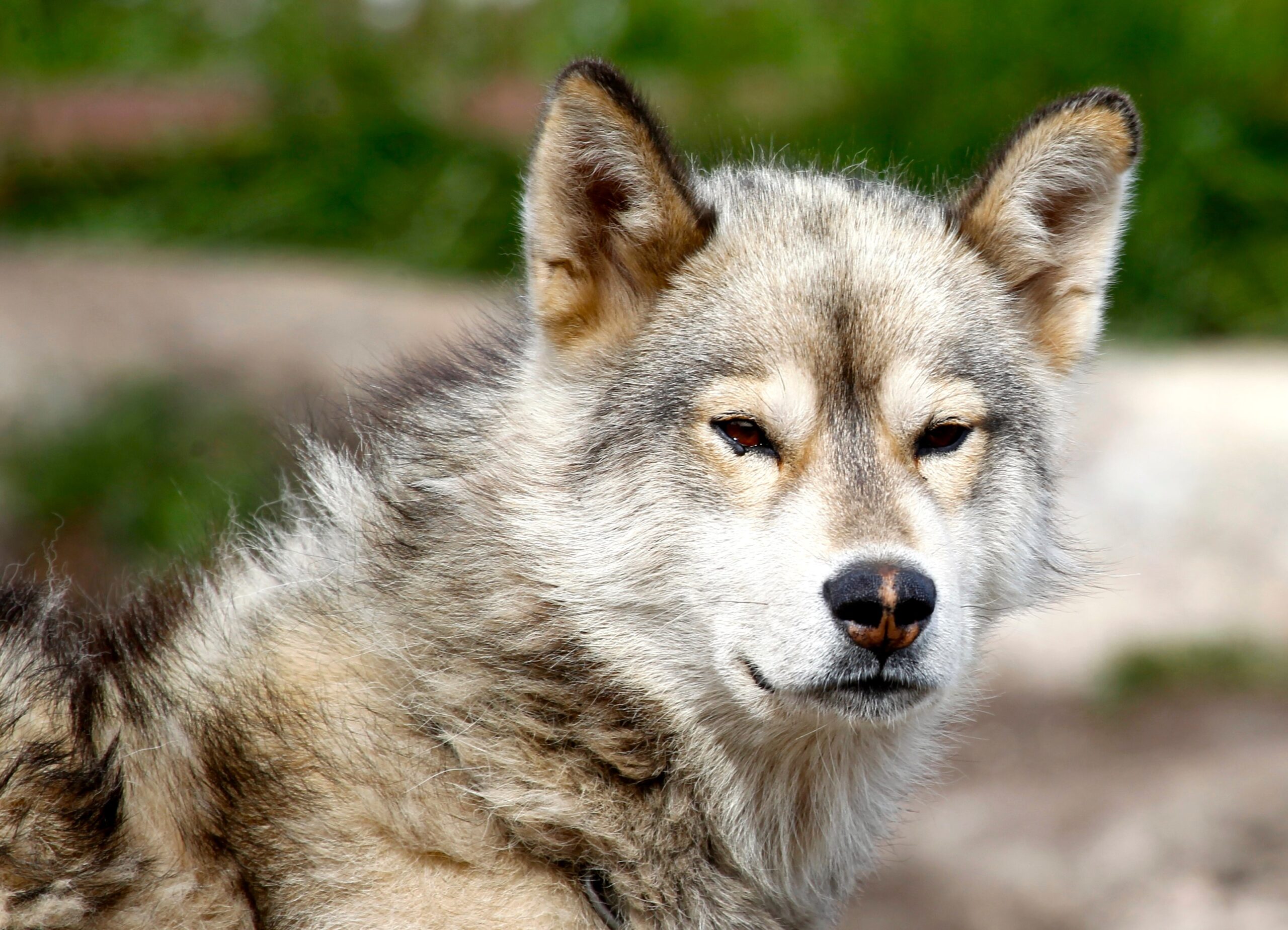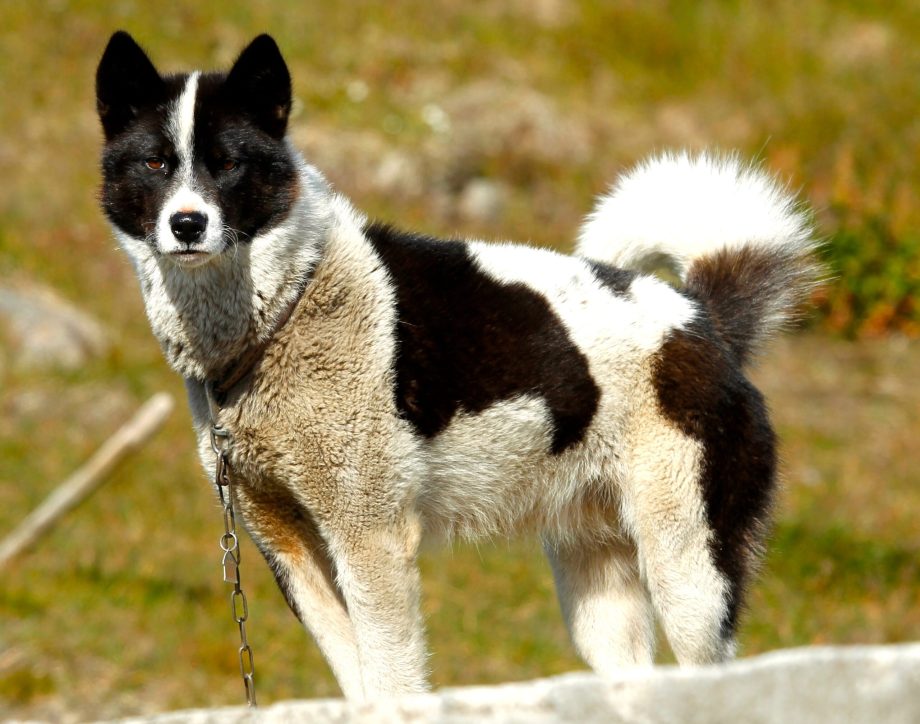The Greenland Dog is a large-sized sled dog brought from Siberia to North America by the Thule people over 1,000 years ago, and the only surviving native breed in Greenland.
These dogs are very similar in appearance to the Alaskan Malamute and the Siberian Husky, although smaller than the former and larger than the latter. They are powerful, sturdy dogs, with strong muscular legs, heavily furred tails and small, triangular ears covered with thick fur preventing frostbite. They have dense double coats, designed to protect them from harsh arctic winters, consisting of a short wool-like inner coat and an outer coat of longer, water-repellent fur. They come in a variety of colours including greys, reds and fawn, with white markings. Greenland Dogs are very loyal dogs which bond closely with their owners and are generally sociable and friendly with strangers. They are good with older children if well-socialised from a young age but may be too boisterous for families with young children. As pack animals, they get on well with other dogs, although may have the tendency to be very dominant. They also have a high prey drive and are not ideal companions for smaller household pets. The Greenland Dog is still very much a working dog and requires vigorous activity every day. They can also be very independent and strong-willed making training both essential and tricky, and are better off suited to experienced owners. These dogs are intelligent and loving but they are not the breed for everyone. They must be part of an active household and are the perfect hiking companion, which will relish vigorous exercise and being or adventure by their owner’s side throughout the day.
History

The Greenland Dog was brought from Siberia to North America by the Thule people 1,000 years ago and is the only surviving native dog to Greenland. As such, it is considered nationally and culturally important to Greenland, with laws brought in to protect it from genetic dilution, forbidding matings with imported dogs.






